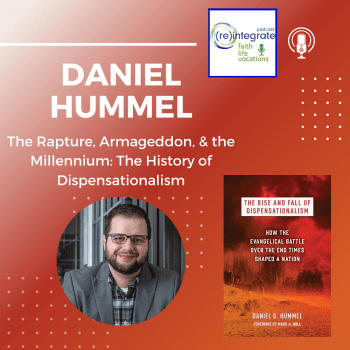 A careful reading of the Bible will see that the original creation is corrupted but not unredeemable.
A careful reading of the Bible will see that the original creation is corrupted but not unredeemable.
We’ve all heard well-intended people say that this earth is “not our home.” The presumption is that this creation is so corrupted by sin that it is irreparable. The goal for Christians, in this view, is to escape this evil creation and go somewhere else. We call that place “Heaven.”
But here’s the Bible’s true teaching: Sin does not abolish God’s love for his creation.
Christopher Wright states,
“Creation is intrinsically good…In the creation narratives, the affirmation ‘It is good’ was not made by Adam and Eve but by God himself…Our own value as human beings begins from the fact that we are ourselves part of the whole creation that God already values and declares to be good.” (The Mission of God, 398)
The pollution and corruption of God’s creation are distinct from the creation itself. We must not make the mistake of conflating the sin done within the creation with the creation itself because the creation was created “very good” (Genesis 1:31).
Mike Wittmer states,
“God refuses to allow our fall to ultimately destroy his good creation, and he graciously comes to earth to put away sin and restore the world to its original goodness. To understand this work of restoration correctly, we must first properly distinguish between the original creation and its fall.” (Heaven Is a Place on Earth, 57)
Contrary to those who believe that the physical world is now evil because of the Fall and therefore God’s destiny for those he saves is to deliver them to a nonmaterial heaven, these theologians are insisting that God still loves everything that he has created that his intention is to not destroy it all but to redeem it all.
Lifeboat or Ark?
The fundamentalists of the early 20th Century and their progeny in the current day do not believe that God’s intention is to redeem the material world. Rather, they believe that this world is passing away. Likening the world to a sinking ship, the most pressing mission for God’s people is to rescue people. As D. L. Moody is credited as saying, there certainly is no reason to polish the rails on a sinking ship.
Paul Marshall calls this “lifeboat theology.” He summarizes this false theology like this:
“The ship is sinking rapidly, God has given up on it and is concerned only with the survival of his people. Any effort we make to salvage God’s creation amounts to rearranging the deck chairs. Instead, some say, our sole task is to get into the lifeboats, to keep them afloat, to pluck drowning victims out of the water, and to sail on until we get to heaven where all will be well.” (Heaven Is Not My Home: Living in the Now of God’s Creation, 30-31).
Marshall suggests a different metaphor to correct this misrepresentation, what he calls “ark theology.”
“Noah’s ark saved not only people, but it preserved God’s other creatures as well. The ark looked not to flee but to return to the land and begin again. Once the flood subsided, everyone and everything on board was intended to return again to restore the earth.” (Heaven Is Not My Home, 31)
N. T. Wright confirms, writing,
“The one thing we can be sure of is that this redeeming of creation will not mean that God will say, of space, time and matter, ‘Oh, well, nice try, good while it lasted but obviously gone bad, so let’s drop it and go for a nonspatiotemporal, nonmaterial world instead.’” (Surprised by Hope, 211-212)
The Fall did not make the creation so evil that it is unredeemable. The problem is not intrinsic to creation, it too is suffering the groans of the Fall.
“For we know that the whole creation has been groaning together in the pains of childbirth until now.” (Romans 8:22)
The problem is rooted in the corruption of the way God intended things to be. Therefore,
“Prostitution does not eliminate the goodness of human sexuality; political tyranny cannot wipe out the divinely ordained character of the state; the anarchy and subjectivism of much of modern art cannot obliterate the creational legitimacy of art itself. In short, evil does not have the power of bringing to naught God’s steadfast faithfulness to the works of his hands.” (Albert Wolters, Creation Regained, 57)
Image by Stewart Baird. Used with permission. Sourced via Flickr.













